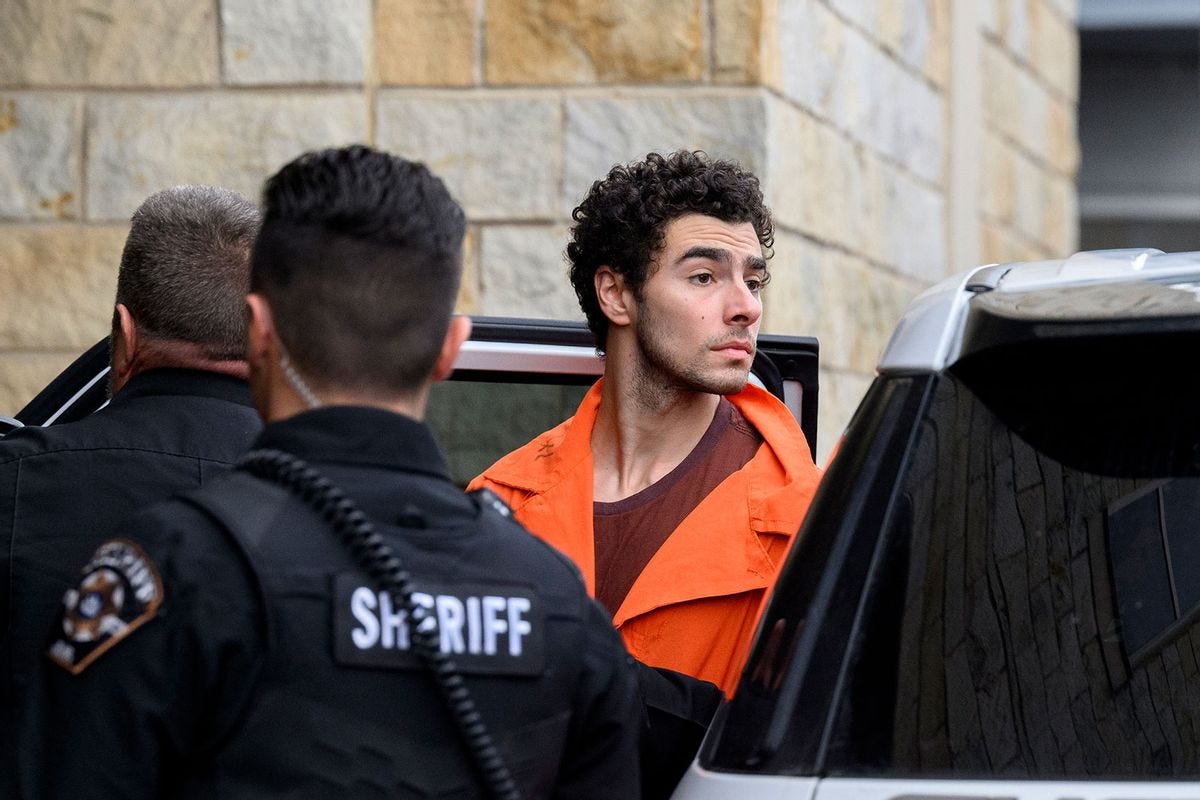The CEO, the Killer, and the Empathy Divide: How Brian Thompson’s Death Sparked a National Debate
Public reactions to the killing of UnitedHealthcare CEO Brian Thompson reveal deep divisions over empathy, moral judgment, and America’s strained health care system.

A Shocking Arrest and an Unusual Public Response
Last week, Pennsylvania police apprehended Luigi Mangione, a person of interest in the fatal shooting of UnitedHealthcare CEO Brian Thompson. His capture followed a tip from a McDonald’s employee in Altoona, Pennsylvania, who recognized him from widely circulated photos.
While the arrest marked the end of a multi-day manhunt for an alleged killer, the public response has been far from what many would expect. Instead of universal relief, the McDonald’s where Mangione was arrested became the target of a flood of negative reviews, with vague complaints about "rats."
This peculiar reaction is emblematic of a broader trend surrounding Thompson’s death: rather than sympathy for the slain CEO, segments of the public have turned Mangione into an unlikely folk hero.
A Tale of Two Reactions
The public's reaction to Thompson’s death starkly contrasts with the response to an assassination attempt on former President Donald Trump earlier this year. After that incident, even many of Trump’s harshest critics expressed “thoughts and prayers” for his safety, emphasizing the sanctity of human life despite political disagreements.
In Thompson’s case, however, empathy has been harder to come by. The CEO’s role as a leader in the for-profit health care industry—a system many view as fundamentally inequitable—has overshadowed his personal identity. For some, Thompson symbolizes a system that profits from human suffering, leading to a moral judgment that casts him not as a victim but as a villain.
Empathy in Decline—or Selectively Applied?
The polarized reaction to Thompson’s death raises questions about the state of empathy in America. Social psychologists have long studied the so-called "empathy gap," which describes a societal decline in the ability to share and understand others’ feelings. A landmark 2010 study found a significant drop in empathy among college students between 1979 and 2009, although recent updates suggest a slow reversal of this trend.
Dr. Sara Konrath, director of the Interdisciplinary Program for Empathy and Altruism Research at Indiana University, offers a nuanced perspective. According to Konrath, empathy is not necessarily in decline but can be "context-specific and selectively applied."
“It’s possible for empathy to be increasing overall, and also selectively applied to those who are seen as victimized, rather than those who are seen as causing harms,” Konrath told Salon.
This selective empathy explains why some people struggle to extend compassion to Thompson. Seen as a representative of a flawed health care system, he has been dehumanized by many who view him through the lens of systemic inequality.
Empathy Fatigue in an Overwhelmed Society
Empathy fatigue—a condition where prolonged exposure to trauma and stress diminishes one’s ability to care—may also play a role in the public’s reaction. According to the Cleveland Clinic, empathy fatigue often affects health care workers, but researchers suggest it now extends to the general population.
From the COVID-19 pandemic to climate change and political unrest, Americans have faced a relentless barrage of crises. In this context, public patience for extending compassion to those perceived as powerful or privileged has worn thin.
Nicole Paulie, a mental health clinical lead at Spectrum Life, notes that social media compounds this issue. Platforms often prioritize shock, outrage, and humor over reflective, empathetic responses.
This dynamic was encapsulated in a viral Instagram post that read, "My empathy is out of network for this one."
Moral Typecasting and the Limits of Compassion
The phenomenon of "moral typecasting" further explains why people may view Thompson unsympathetically. This psychological concept describes how individuals categorized as "villains" are often perceived as incapable of suffering or feeling pain.
Carla Marie Manly, a clinical psychologist, highlights how Thompson’s professional identity complicates public perceptions of his humanity.
“Although the public’s response to a murder is generally empathic, feelings of empathy tend to dwindle if the victim is viewed in a negative light,” Manly said. “On a symbolic level, many people see Thompson as a representative of the unfeeling, avaricious corporate culture.”
A Divided Moral Landscape
Not everyone has celebrated Mangione’s alleged actions. Pennsylvania Governor Josh Shapiro condemned the killing, stating, “In America, we do not kill people in cold blood to resolve policy differences or express a viewpoint.”
Yet, the broader public debate highlights a deeper societal rift. In an era of increasing polarization, empathy has become a scarce resource, selectively distributed based on one’s perception of power, privilege, and moral worth.
Rebuilding the Foundations of Empathy
Thompson’s death and its aftermath serve as a stark reminder of the need to address systemic injustices while fostering compassion for all individuals.
Manly offers a hopeful perspective, urging people to “stoke the embers of empathy rather than the flames of anger.” Doing so may help bridge the growing empathy divide and foster a more humane society.
As America grapples with these questions, the legacy of Thompson’s life—and his death—will continue to spark important conversations about empathy, morality, and the values that shape our collective future.


